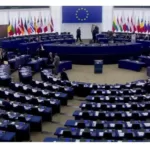In a significant development, Israeli Prime Minister Benjamin Netanyahu has underscored a nuanced stance between the United States and Israel regarding the post-conflict scenario once Israel ceases its bombardment of Gaza. Despite the historical alliance, Netanyahu asserted that Gaza’s future will not be aligned with either Hamas or the Western-backed Fatah faction, led by President Mahmoud Abbas.
In a statement, Netanyahu clarified his position, stating, “I would like to clarify my position: I will not allow Israel to repeat the mistake of Oslo.” However, he did not specify which aspect of the Oslo Accords, signed in 1993, he considered a mistake. The Oslo Accords had initiated limited Palestinian autonomy in the West Bank and Gaza.
Simultaneously, US President Joe Biden expressed concerns over Israel’s global standing, noting that the indiscriminate bombing of Gaza is eroding international support. Biden, speaking at a campaign fundraising event in Washington, suggested a shift in Netanyahu’s hardline government.
The ongoing offensive in Gaza, triggered by Hamas’ October 7 attack into southern Israel, has faced widespread criticism, leading to calls for a cease-fire globally. Despite consistent US support for Israel, concerns persist over the significant civilian casualties and infrastructure destruction in Gaza.
This discord between the US and Israel adds a layer of complexity to the already challenging geopolitical landscape in the region, raising questions about the diplomatic ramifications and potential shifts in alliances.







